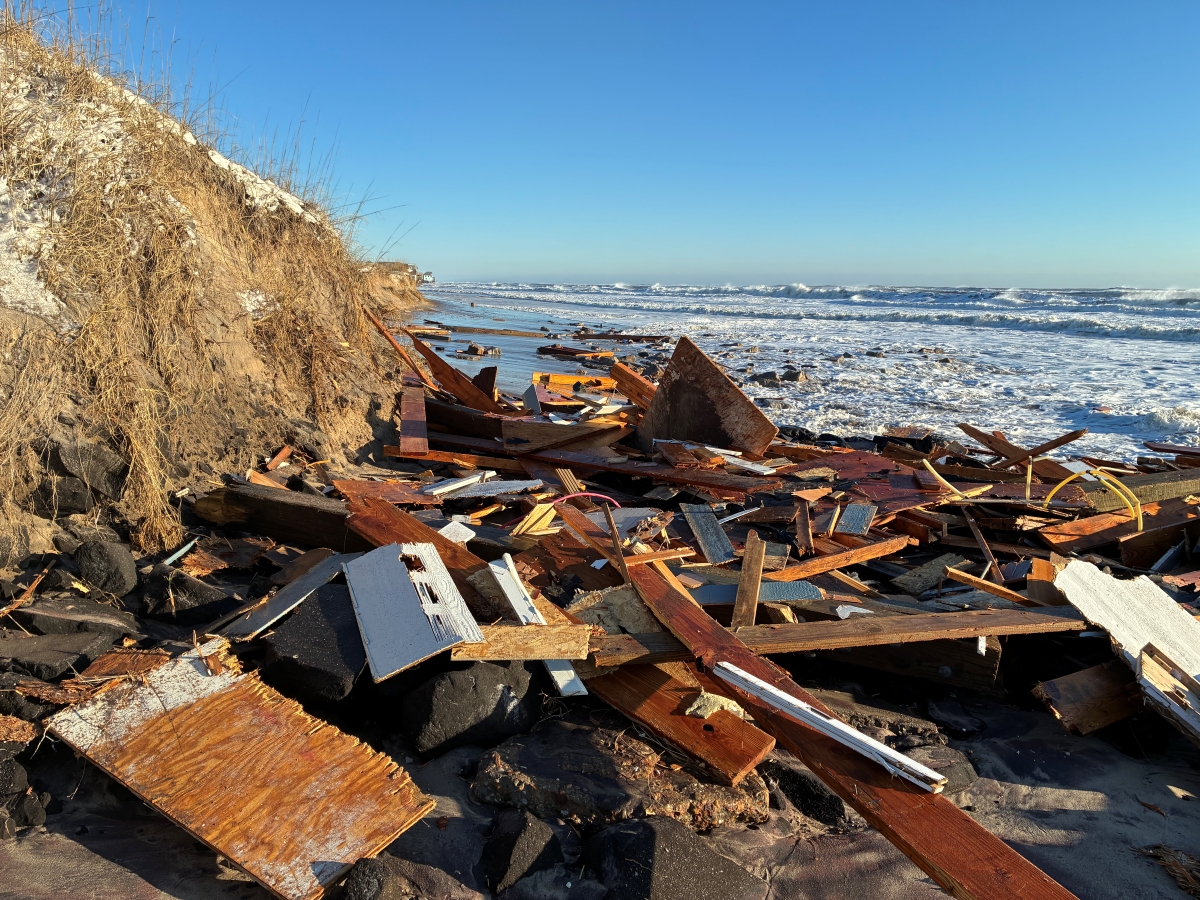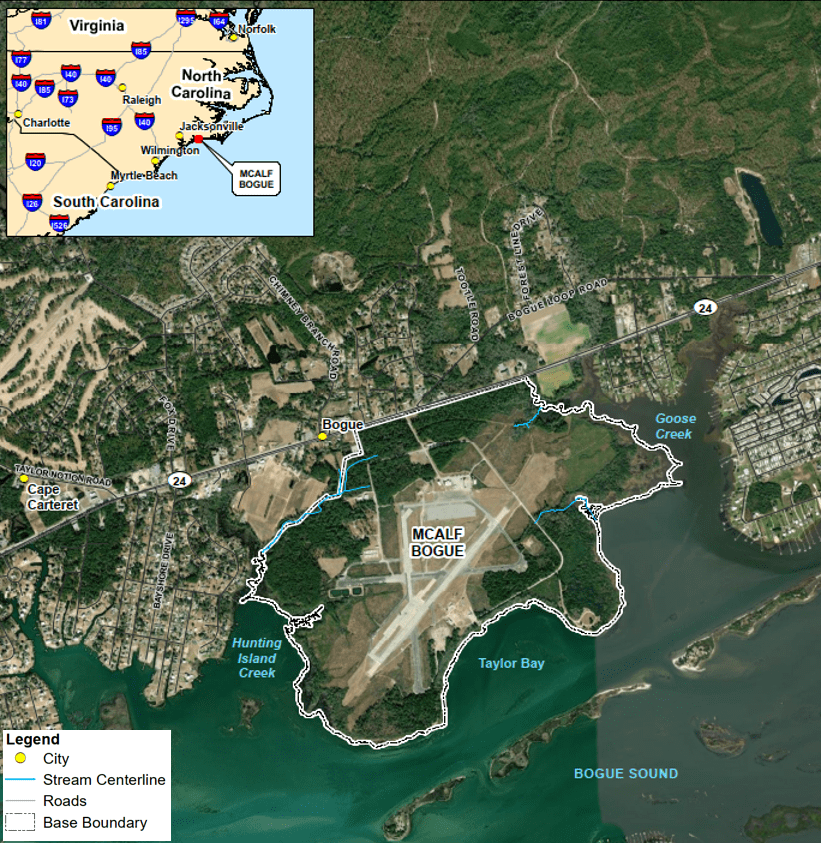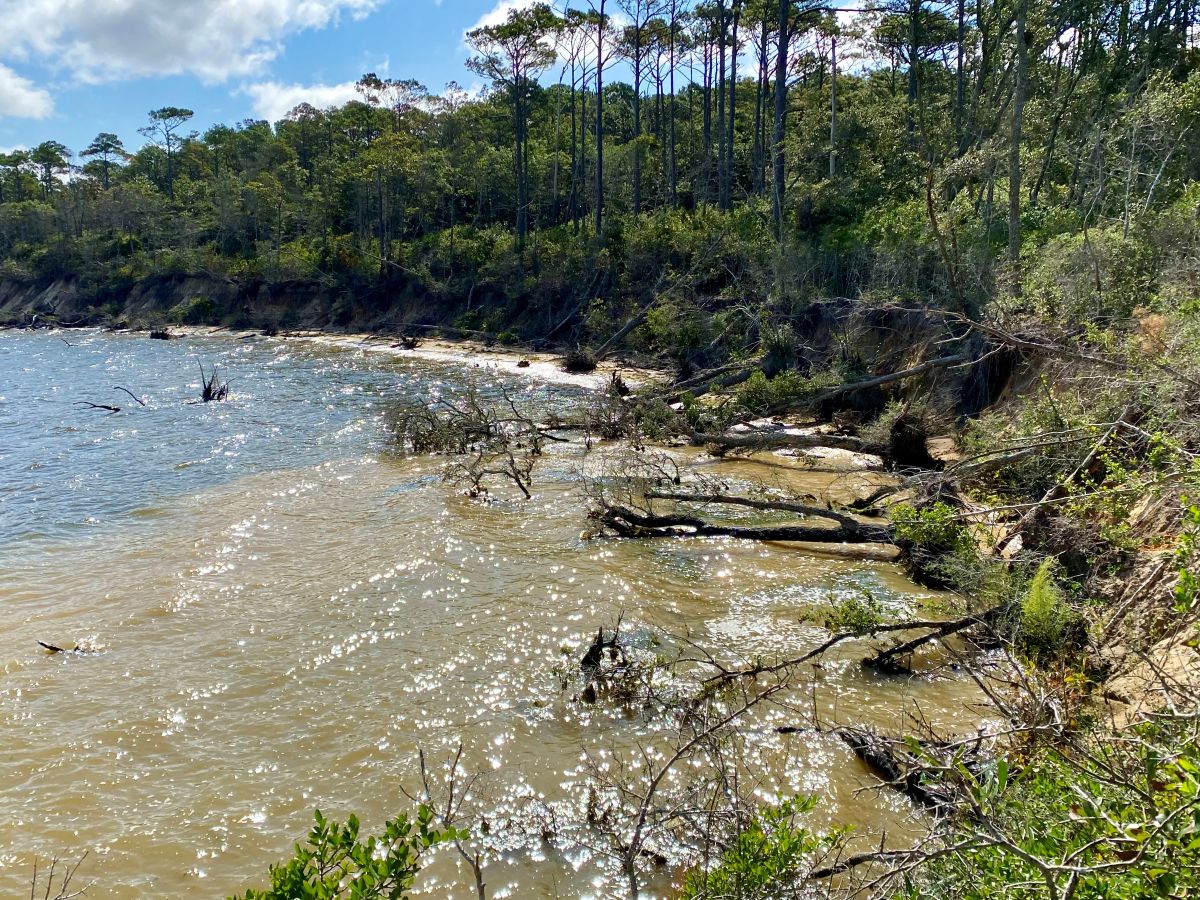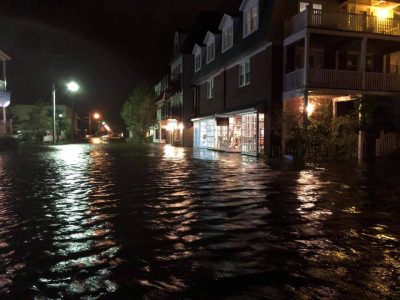
RALEIGH – For the past few years, inside and outside the walls of the state legislature, there’s been a noticeable shift in the conversation about climate change and its impact in North Carolina.
It’s a change driven in part by a renewed political debate, but according to recent studies and surveys, it’s mainly the result of personal experience.
Supporter Spotlight
A new study by the Yale University Program on Climate Change Communication found that nationwide there’s been a jump in the number of people in the United States who believe they have experienced global warming’s effects.
The study, Climate Change in the American Mind, which was released in December, found that 46 percent of those surveyed said they had personally experienced the effects of global warming, two-thirds said global warming is affecting weather in the United States and more than half said warming has made natural disasters such as wildfires and hurricanes worse.
That change is evident in North Carolina, where record rainfalls statewide and the devastating effects of natural disasters, especially the repeated inundation of eastern North Carolina from hurricanes, has helped change the dialogue from one of questioning whether climate change is happening to what can be done about it.
The close succession of Hurricane Matthew in October 2016 and Hurricane Florence in September 2018 appears to have accelerated the change in public perception here.
An Elon University Poll conducted in October 2018, a month after Hurricane Florence made landfall here, found that for the first time a majority of North Carolinians, 53 percent, think it is very likely that the state’s coastal communities will be negatively affected by climate change during the next 50 years, an increase of 8 percent compared to a similar poll a year and a half earlier.
Supporter Spotlight
In the North Carolina General Assembly, the idea that public policy must take into consideration a changing climate has received greater attention as the legislature reviews recovery plans in the wake of Hurricane Florence.
Late last year, in the initial response to the disaster, legislators focused on the immediate recovery. While there was some discussion that a changing climate might require policy changes in response, working through those choices was left for future sessions.Now, with a series of policy and budget choices ahead, legislative committees will begin sifting through the options.
They’ll be pushed by Gov. Roy Cooper, who has stepped up pressure on legislators to commit to programs aimed at addressing climate change, including support for cleaner energy production and an array of resiliency initiatives that would move infrastructure, agriculture operations and people out of flood-prone areas.
Cooper, who testified Wednesday morning on climate change before the U.S. House of Representatives Natural Resources Committee, wields far more negotiating power as a result of the 2018 election, which ended the long-held Republican supermajorities in each chamber.
.@NC_Governor: “We can’t afford not to take urgent action to fight climate change. It is not too late, but it soon may be.” pic.twitter.com/7k0GuUx7tw
— Natural Resources (@NRDems) February 6, 2019
Cooper on Oct. 29, 2018, ordered greenhouse gas reductions in operations of all state agencies and required them to build consideration of climate effects into planning and regulatory functions. But to move the needle beyond the executive branch, the governor will need the backing of the legislature, where many members remain unconvinced of the science, the need for sweeping policy changes or both.
Rep. Pat McElraft, R-Carteret, a veteran legislator who is co-chair of the House Environment Committee and the appropriations subcommittee that drafts the environmental and natural resources budget, said she remains skeptical about the cause of climate change and taking policies too far in response.
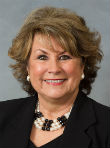
“I’m convinced that the climate changes. I’m not convinced that man has that big a part in it,” she said in a recent interview with Coastal Review Online. “I’m sure there is a small amount, but when you start looking at changing everything in America, when the Chinese haven’t changed anything, and other countries haven’t changed anything …”
McElraft said she does support preventive measures, which have helped in coastal areas, but she isn’t convinced the state needs to start elevating roads. She said the emphasis should instead be on clearing debris from waterways. The state’s beach areas fared far better in terms of rising water than inland communities, she said.
“I think we in North Carolina already have prepared and are pretty resilient. I think our issues are 30 inches of rain and river flooding and we need to do something about cleaning out the creeks and rivers. That should be our focus,” McElraft said.
For Rep. Ray Russell, a Democrat who won in a Republican-leaning district in North Carolina’s northwest mountains, the state will have to do far more.
Russell, a computer science professor at Appalachian State University and a web entrepreneur who founded a respected weather site, said climate change and effects of global warming on North Carolina is one area where most residents are ahead of the legislature.
“They’re understanding climate change now, unlike five to 10 years ago. They feel it,” Russell said. Climate change deniers continue the same “mumbo-jumbo,” he said, “but no legitimate scientist has any question about (global) warming.”
Russell said that for years he’s been advising businesses to prepare for changes, and it’s inevitable that the state will also have to start to shift.

“It’s only a matter of time before it works its way to this body,” he said in a recent interview at the Legislative Building. “There are going to be fundamental changes to how we do business here, but a little bit at a time.”
The model for transportation funding, “will be turned on its head,” he said. “In 30 years, we’re not going to be able to rely on a gas tax to get that done.”
Right now, some of the biggest recurring economic effects are seen in agriculture, Russell said. In the state’s mountain regions, climate change has already shortened the growing season, and wet weather and early- to late-season temperature swings have taken a toll on berry and apple farmers.
Russell said some farmers are facing the loss of crop insurance coverage because the climate is no longer viable for orchards.
“Insurance companies are paying attention and are starting to reduce liability,” he said.
Concerns about apple orchards are also on the mind of Rep. Chuck McGrady, a Republican who is both a key House budget co-chair and an environmentalist with no qualms about the scientific consensus on climate change.
McGrady, whose district in Henderson County is in the heart of the state’s apple-growing region, said that to move forward, those pushing for policy changes will have to take a pragmatic approach. There is still a lot of wariness around the term “climate change,” McGrady said, but there is a consensus around the need for greater resiliency.
“I do think most Republicans are skeptical about climate change and you’re not going to likely see changes in how we address disaster relief by making climate change arguments,” McGrady said. “That said, I think there is more of a focus on resiliency. We have had two major storms within a short period of time, and we’re being asked to build again or fix again a range of the same things we just built or fixed.”

There’s more of a recognition now that there are places where the state should be rebuilding, he said.
The legislature has roughly $100 million budgeted for the next round of disaster relief. That’s where McGrady and others expect the disaster avoidance initiatives to happen.
Since the storm, the legislature has been working with the governor’s office to prioritize spending, working through a menu of options. The early priorities were getting schools open and roads back in service, but now, he said, there’s an understanding that the next part of the recovery plan is building greater resiliency.
“The early priority was on fixing a range of things not on preventing future things,” he said. “Now there is a recognition that since we’ve had two of these massive events that we have to spend money on prevention and avoidance.”
McGrady said he is not discouraged that many of his colleagues do not share his views on climate change. He said late last year the legislature approved a plan advocated by Cooper for a new section of the Division of Emergency Management charged with managing resiliency and recovery efforts. Setting up the new group was an acknowledgement that the state couldn’t manage either on a storm-by-storm basis and needs longer-term programs and strategies.
McGrady said he’s also encouraged because, even though many of his colleagues are still doubtful about climate change, they are now far more willing to discuss doing something about it.
While working on legislation for recovery programs during Hurricane Matthew, McGrady said that raising resilience, prevention and avoidance issues “were more or less laughed at.” The thinking then was that it was a one-time event and the state just needed to fund the recovery.
“There’s none of that thinking now,” McGrady said.



